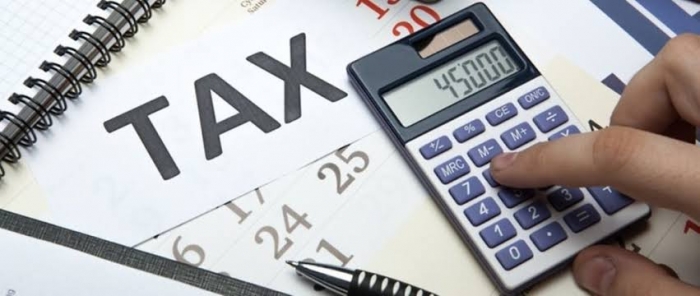Oxfam Nigeria, a non-profit organization, has revealed that 99% of Nigeria’s wealthiest individuals either evade or avoid paying taxes, exacerbating the country’s economic inequality while millions of Nigerians struggle to survive. The findings were presented in two reports titled “Income and Wealth Inequality in Nigeria: Trends and Drivers” and “Taxing the Rich: Fair Tax Monitor,” released on Tuesday. These reports, produced in collaboration with Tax Justice Network Africa and the Civil Society Legislative Advocacy Centre (CISLAC), cover a decade of data.
Despite being Africa’s fourth-largest economy, Nigeria’s economic growth has disproportionately benefited a small elite, leaving millions in poverty. The Federal Inland Revenue Service (FIRS) and John Bean Technologies Corporation (JBT) confirmed that only 40 of Nigeria’s wealthiest individuals complied with tax regulations, representing a compliance rate of just 0.035%. This suggests that over 99% of the country’s wealthiest citizens evade or avoid paying taxes.
Oxfam reported that Nigeria ranks among the countries with the highest income inequality in sub-Saharan Africa, with a wealth Gini coefficient of 35.1. This places Nigeria 11th out of 16 West African nations, underscoring the widening gap between the rich and the poor. Approximately 133 million Nigerians, or about 70% of the population, are struggling with hunger, with women and girls disproportionately affected, making up 63% of the food-insecure population. Rural areas are also severely underserved, with less than 40% of households having access to electricity, further limiting educational and healthcare access.
Impact on Women and Girls
Oxfam highlighted that women and girls bear a heavier burden of poverty. Women’s literacy rate is 35%, compared to 59.5% for men. Limited access to education, land ownership, and economic opportunities leaves women disproportionately disadvantaged.
The reports suggest that a progressive wealth tax could generate over $7.5 billion annually, enough to double the government’s health budget or reduce out-of-pocket healthcare costs for households by 40%. This additional revenue could ease financial burdens on millions of Nigerians.
Oxfam also pointed out that Nigeria is nearing bankruptcy, with some states like Sokoto experiencing an 87% poverty rate, in stark contrast to Lagos, where only 4.5% live below the poverty line. Nigeria’s rising debt means that a significant portion of the national budget is spent on loan repayments, diverting resources from essential public services.
Call for Progressive Taxation
John Makina, Oxfam’s country director, expressed alarm at the situation, noting that while millions of Nigerians struggle to afford basic necessities, the super-rich continue to grow their wealth without paying fair taxes. He attributed this to complex tax laws and a lack of transparency, which prevent Nigeria from raising the revenue needed to invest in social protections and reduce inequality.
Oxfam recommended several measures to address the widening economic divide. These include adopting progressive taxation, increasing social sector spending to at least 10% of the national budget, and investing in human capital development through education, healthcare, and job creation. Additionally, the organization urged the government to support smallholder farmers, reform agriculture, and collaborate with civil society to promote gender equality and hold officials accountable.
Analysis:
Oxfam’s report underscores the dire consequences of income inequality in Nigeria, highlighting how tax evasion by the country’s wealthiest citizens exacerbates poverty and limits economic development. The findings reveal a systemic failure to enforce tax laws, with the wealthiest few evading their responsibilities while the majority of the population bears the brunt of economic hardship. The report suggests that Nigeria’s economic growth has been concentrated in the hands of a small elite, leaving millions trapped in poverty.
The wealth Gini coefficient of 35.1, along with the high percentage of the population facing hunger, illustrates how economic inequality has deepened in Nigeria. This inequality is further worsened by gender disparities, as women and girls face greater economic and social disadvantages due to lower literacy rates, limited access to land, and fewer opportunities for economic advancement.
The report’s call for a progressive wealth tax highlights a potential solution to Nigeria’s revenue shortfall. A 1% tax on high-net-worth individuals could generate billions of dollars annually, helping fund crucial social programs such as healthcare and education. By adopting progressive taxation, Nigeria could reduce its reliance on external borrowing and use its domestic resources more effectively to tackle poverty and inequality.
Oxfam’s recommendations to support smallholder farmers and reform agricultural policies are also critical, as these sectors provide livelihoods for much of Nigeria’s rural population. Strengthening access to credit, land, and infrastructure for small-scale farmers could help boost agricultural productivity and provide a pathway out of poverty for millions.
However, without strong political will and improved governance, implementing these measures will be challenging. Corruption, complex tax laws, and lack of transparency have long plagued Nigeria’s tax system, preventing the country from raising adequate revenue to address its socio-economic challenges. If these issues are not addressed, Nigeria’s wealth gap will likely continue to grow, further entrenching inequality and economic stagnation.
































































